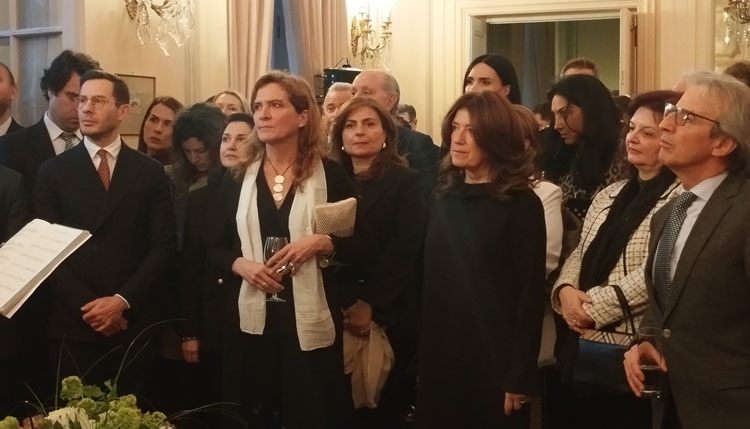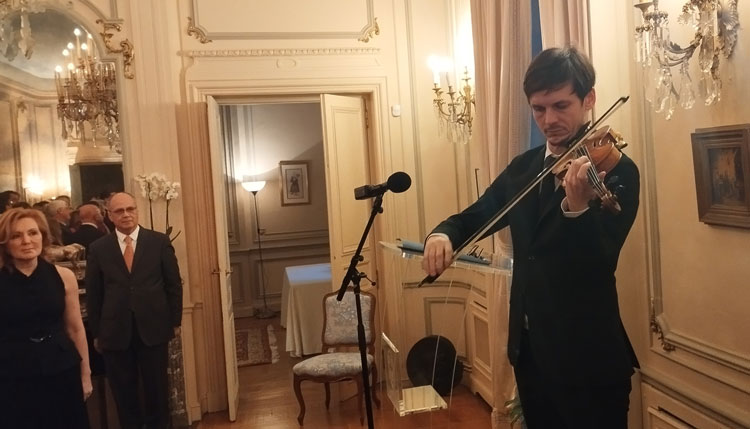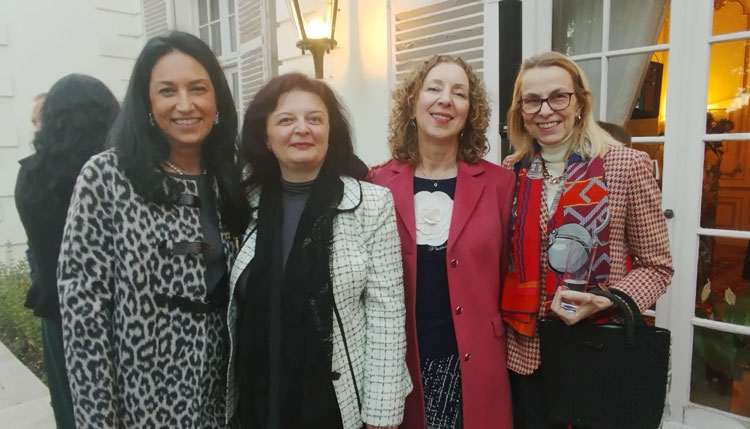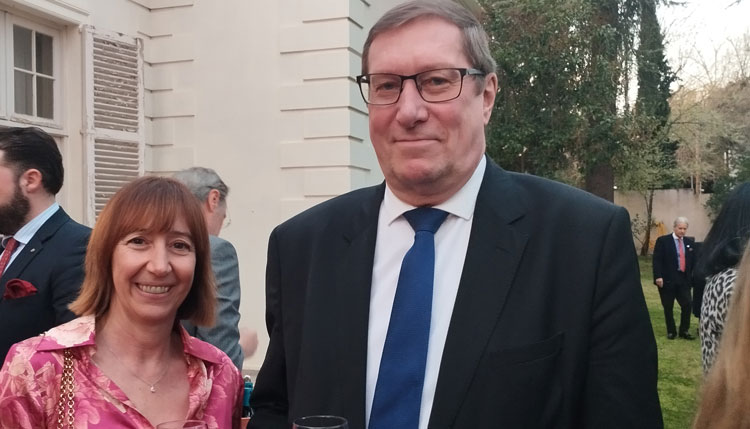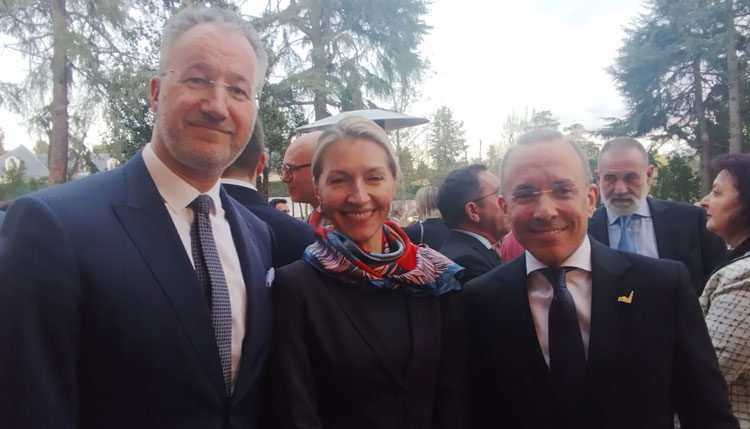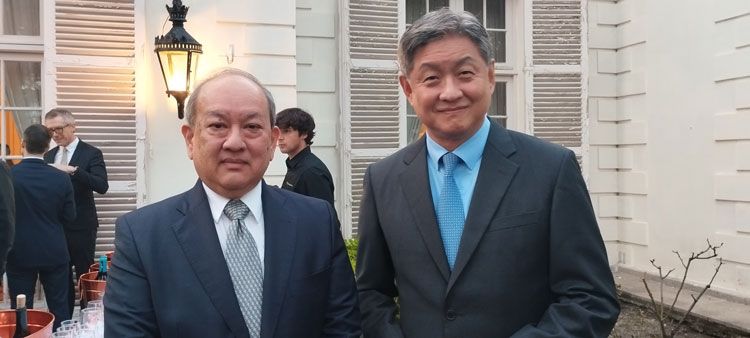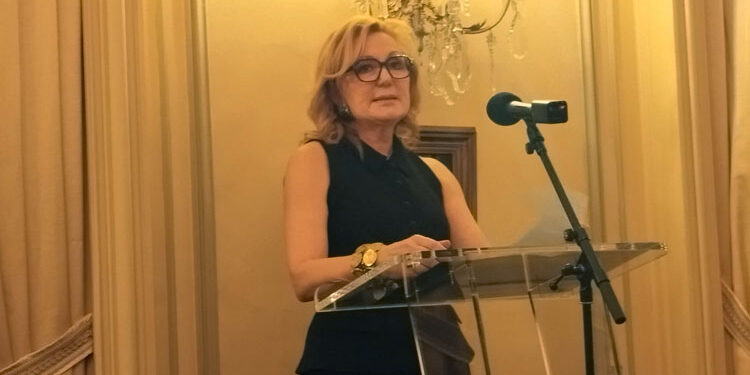Juan David Latorre
Last Tuesday, the Embassy of Greece celebrated the anniversary of the struggle for national independence, which took place on March 25, 1821, with a reception at the residence of the ambassador Aglaia Balta.
“A decisive date for the creation of the new Greek state, said the ambassador. During all these years, Greece has been a modern, independent and sovereign State, struggling and often going through adverse economic, social and political conditions and relying on the values of democracy, freedom and respect for human rights. Greece, a member of the EU and NATO, remains today a factor of peace, security and stability in a turbulent region which is constantly and actively promoting European values.”
With regard to the development of the Greek economy in recent years, Aglaia Balta stated that “is on a path of recovery, having experienced rapid economic development despite the negative consequences and unfavourable international economic situation, mainly due to wars in Ukraine and the Middle East”.
The ambassador continued in her speech noting that “Greece, elected non-permanent member of the UN Security Council for the period 2025-2026, whose candidacy also supported our host country, Spain, is based on dialogue, diplomacy and democracy, and focuses its efforts on priorities such as the peaceful settlement of disputes, respect for international law and the rules and principles of the Charter of the United Nations, women, peace and security, climate change, maritime safety and the protection of children’s rights, especially in areas of armed conflict. Values such as justice and social cohesion, solidarity, democracy and humanism continue to be the pillars of Greek politics”.
Regarding economic and trade relations between Greece and Spain, the ambassador noted that “they are on an upward trajectory. In recent years, thanks to the recovery of the Greek economy and the creation of a positive investment climate, trade between the two countries has also increased. Spain is an important economic and trade partner for my country, as the volume of bilateral trade continues to grow, while investment flows in sectors such as renewable energies, aquaculture, tourism and hotel infrastructure are multiplying, This shows the hopeful prospects for further strengthening and deepening of cooperation between the two countries. This positive climate will be further consolidated by the Greek business mission to Madrid scheduled for the first half of the year, led by the AAEE Deputy Minister with competence in economic relations. In addition, the desire to strengthen all bilateral relations was also expressed during the recent political consultations between the two countries which took place on 10 March in Athens at the level of political directors. Existing collaboration in the tourism, education, training, culture and civil society sectors is expected to be strengthened as synergies, collaborations and solidarity are essential elements in an ever-changing global scenario”.
The reception offered by the Greek Embassy was also dedicated to the Armed Forces, so Ambassador Aglaia Balta stressed that “in addition to the cooperation which takes place both within the framework of NATO obligations of both countries, and in national and multinational exercises such as the ΙΟΧΟΣ-25, there is also close collaboration in the field of training, Greek officers in Albacete and at the naval base of Rota receiving training, as well as Spanish officers at the NATO Training Centre (NMI OTC) in Suda, Crete”.
To conclude her speech, Aglaia Balta wished to make a special mention of Haris Theoharis, candidate for the post of Secretary-General of the World Tourism Organization, whose headquarters are in Madrid. “I am sure, he said, that those who have known or heard of him are aware of his extensive knowledge and ability in the demanding tourism sector. Theoharis brings together all the qualities that make him an exceptional candidate for this post, having held high-level positions in the Greek Ministry of Tourism during a very difficult period, and not only with experience, but also with a clear vision for the future of global tourism and for the fundamental reforms that are required on the basis of the pillars of transparency, inclusion, justice, efficiency, unity and change.”
